Atlantic Monthly Contributors's Blog, page 436
May 4, 2015
The Audacity of Ben Carson and Carly Fiorina
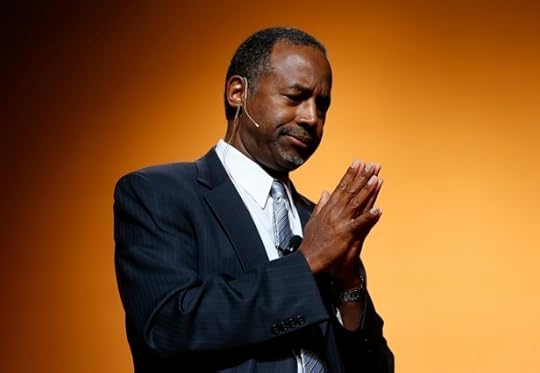
Who do they think they are?
Ben Carson is one of the nation's most famous neurosurgeons. He's never run for office.
Carly Fiorina was once the CEO of Hewlett-Packard, and she ran for office once—in 2010, in a Republican wave year, when she was trounced by Democratic Senator Barbara Boxer.
Now both of them are running for the highest office in the land, the leadership of the free world. It takes an impressive amount of confidence and a certain amount of detachment from reality for even the most seasoned politicians to undertake presidential campaigns, but that's especially true of long-shot candidates like Carson and Fiorina, whose odds of becoming president are practically nil.
Both of them are trying to turn that very distance from the establishment into a rationale for their candidacies. "I'm not a politician," Carson said at his launch event in Detroit on Monday. "I don't want to be a politician because politicians do what is politically expedient. I want to do what's right." And Fiorina, in her announcement video, said: "Our founders never intended for there to be a professional political class."
That seems like it ought to be a potent argument. After all, Americans are completely disgusted with Washington and disillusioned with the political process. Scorn for the political class might seem particularly relevant given that the leading Democratic and Republican candidates are, again, named Clinton and Bush.
In practice, however, there are structural factors that tend to keep fresh faces from getting very far, and the historical record shows how hard it is to get into office without either a lengthy political résumé or ribbons pinned to your chest. It's very hard to win the nomination or raise significant money without a grounding in politics and experienced staffers. It also means you have to learn how to speak like a politician and avoid all the potholes, while already in the harsh glare of the national media spotlight.
Related Story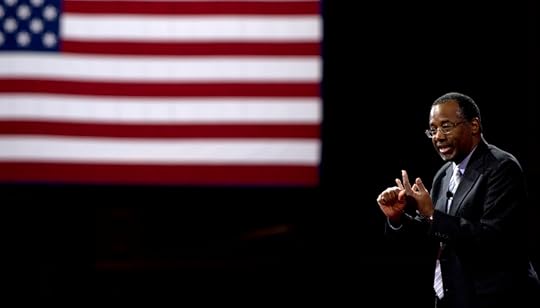
The 2016 Presidential Race: A Cheat Sheet
Carson has already put together a string of odd statements, including likening Obamacare to slavery and comparing the contemporary the U.S. to Nazi Germany. As for Fiorina, someone noticed that she had failed to register carlyfiorina.org—the sort of step a pro would have locked down months ago—and promptly turned it into a page skewering her for layoffs while at Hewlett-Packard.
These are the sorts of things that make operatives and insiders cringe. As John Sides and Lynn Vavreck noted in The Gamble, their book on the 2012 campaign, endorsements from inside the party are a huge part of winning the nomination, and that's especially hard for an outsider. But they're also exactly what endears them to voters, at least in Carson's case—he's willing to say things that other politicians are either too careful or too bashful to say, and he brags about his lack of political correctness.
Carson, as a black man, and Fiorina, as a woman, are notably distinct from the rest of the Republican field. The GOP, concerned about becoming only a party of white voters, has worked hard to find minority candidates for down-ballot races, with some high-profile successes. Actually winning minority votes has proved more difficult, and Ben Carson's views are substantially more conservative than those of the majority of black voters. Fiorina, meanwhile, has specifically positioned herself as the ideal candidate to take on Hillary Clinton and defuse any accusations of sexism by Democrats. But her business career, her major résumé line, is also a liability, since her leadership of HP was widely panned and ended in her ouster.
In recent memory, it's hard to think of non-politician candidates who got much of a foothold. (Carson's stock in polls has slid from its double-digit peak following announcements by Senators Ted Cruz, Rand Paul, and Marco Rubio, but he still hovers around 5 percent. Fiorina, however, barely registers at 1 percent.) Among Republicans, businessman Herman Cain led polls in the 2012 race for about a week before his campaign collapsed under sex scandals and his inability to deliver much of a policy platform—a good demonstration of the struggles that face non-traditional candidates. Pat Buchanan's guerrilla campaigns in 1992 and 1996 were surprisingly successful, but while Buchanan had never held elected office, he had worked in two Republican White Houses. Businessman Steve Forbes and activist Alan Keyes also ran with little success. On the Democratic side of the equation, General Wesley Clark's 2004 campaign was widely anticipated but quickly fizzled. Al Sharpton ran in 2004, but like Buchanan, he was hardly new to politics.
Historically, the most common path to political success for a non-elected official or non-activist is through the military: Among non-politicians and first-time office-seekers, almost every person who won a party's nomination since the start of the Civil War was, like Wes Clark, a war hero. Among Republicans, there was Dwight Eisenhower in 1952 and U.S. Grant in 1868, plus Douglas MacArthur's abortive 1948 bid. Businessman Wendell Willkie, the exception that tests the rule, won the chance to be taken to the cleaners by Franklin Roosevelt in 1940. Democrats nominated General Winfield Scott Hancock in 1880 and General George McClellan in 1864, plus newspaperman Horace Greeley in 1872.
Running for president doesn't seem like fun by nearly any standard—you move around the country constantly, deliver the same speech until you're hoarse, beg strangers for money, and shake hands until your palms are raw. And what do you get for it? Lost sleep, broken dreams, massive invasions of privacy, and a vanishingly slim chance at the Oval Office. It's hard to listen to Mitt Romney's laments about his 2012 campaign and think it would be fun to try. When long-shot candidates run for office, there's often snarky speculation about what they're looking for: Do they want to sell books? Are they trying to score a prime position as a cable-news commentator? Are they a former politician desperate to reclaim a little bit of that old glow?
But neither Carson nor Fiorina seems likely to be in need of money—Carson's a very successful doctor and a bestselling author, and Fiorina was a highly paid executive who took a $40 million golden parachute out of HP. Nor does either have a particularly grand policy vision that might drive them to seek the office, akin to the vision of democratic socialism that inspires Senator Bernie Sanders's longshot Democratic bid. Fiorina seems mostly to be running on the basis that she's an outsider. Although she's recently dipped into politics, with that 2010 run and as a surrogate for John McCain in 2008, she seems to have had little prior interest in public life, and has a scanty voting record.
Carson seems to have strong and heartfelt opinions on some political issues. In particular, he's a strong opponent of the Affordable Care Act, which he views as tyrannical. But much of the rest of his policy vision seems either unconstructed (on a trip with GQ's Jason Zengerle, Carson seemed untutored and even a little uninterested in Israeli politics) or unorthodox (in an interview with my colleague James Hamblin last year, Carson espoused national redistribution of educational funds).
Maybe a better question than who Ben Carson and Carly Fiorina think they are is why they're willing to put themselves through the misery of a presidential race. It's a testament to the appeal of the presidency, and the national myth of citizen leaders, that candidates with so little to gain keep putting themselves forward.







Mad Men: A Toast to Light Beer and Octopus Porn

Every week for the seventh and final season of AMC's hit period-drama Mad Men, Sophie Gilbert, David Sims, and Lenika Cruz will discuss the possible fates facing Don Draper and those in his orbit.
Sims: At the end of a rather spellbindingly strange episode of Mad Men, Don Draper drove off into the American unknown (well, St. Paul), having picked up a hitchhiker, in search of … it’s hard to know what, exactly. It was a powerful image, but wherever Don is going, it might be one of the show’s least interesting story threads as it approaches its conclusion. Don’s listlessness has been pointing toward this hobo journey for months now, but “Lost Horizon” wrung far more fascinating material from Joan and Peggy’s transitions to McCann Erickson. Perhaps we won’t even see Don in next week’s penultimate episode. Would that be so bad?
Related Story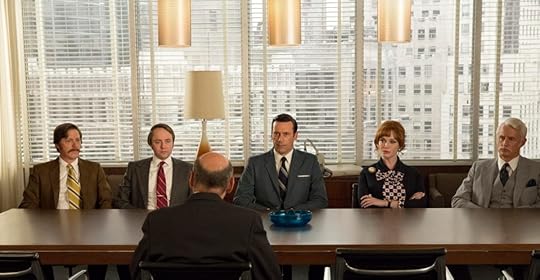
"Lost Horizon" saw the SC&P folk begin to move over to the vast offices of McCann, each somehow installed on a different floor. There was no sign of Stan, lost somewhere in creative, and Roger compared his consignment to the 26th floor to being sent to a “nursing home.” McCann’s resources were supposed to impress, but the building’s claustrophobic corridors gave an immediate sense of what's happening to SC&P: It’s being swallowed up, with little consideration given to its existing accounts or staffers. Joan was treated horrifyingly (more on that in a second), an offhand line suggested Peggy won’t retain the authority she's worked long and hard to earn, and Harry Crane seemed happy about things. Anytime Harry Crane is happy, something has to be deeply wrong.
For Don, McCann’s oppressiveness played out in a creative meeting for Miller Beer, where an assembled group of copywriters gathered to listen to a researcher prattle rapturously about Miller’s target audience. Don was clearly a prize for McCann head Jim Hobart, who referred to him as a “white whale” and clearly can’t wait to unleash him on his biggest clients. But it’s immediately obvious there’s nothing in this creative process that would hold any appeal for Don, who’s already prone to looking out at the sky wistfully. At one point, he fiddled with his office window ominously; at another, he gazed at a plane in the sky. The symbolism is on the nose, to be sure, but at least he finally did something about it, driving off into the Midwest in search of Diana’s past.
It's hard to believe that Don is still this hung up on Diana, but he went right to her old home; literally haunted by the child she left behind, who appeared lurking on the stairs behind her stepmother like a dark-haired vision right out of The Ring. It’s hard to parse what Diana represents to Don, aside from being another lost soul, but this encounter was enough to push him further away from New York, driving toward parts unknown, leaving only poor Meredith to make excuses for him in the office.
It’s a wonder Joan didn’t go on her own vision quest after the nightmare she was confronted with at McCann: Much as she predicted in last week’s episode, she wasn’t welcomed warmly as an equal partner but seen as a nuisance for (justly) complaining about how her accounts are being mishandled. She took things up the ladder, only for Ferg Donnelly to assume she was game to begin an affair; when she talked to Hobart, he offered her 50 cents on the dollar for her shares, and though she was thoroughly amazing in the meeting (basically threatening to drown McCann in lawsuits) she ended up taking the deal, a depressing reminder of the relative powerlessness against systematic harassment in that era.
Or is she powerless? The most exciting thing about “Lost Horizon” was the hint that Joan and Peggy might be bound for more exciting territory—Joan, free of her non-compete clause and with money in the bank, and Peggy, who finally moved into her office with Bert’s antique Japanese squid picture in tow, smoking a cigarette and wearing shades in what was bound to be the most enduring Mad Men shot of the season. As the show closes in on an endgame, it’s hard to imagine that endgame involves Peggy lost in the bowels of McCann. But how quickly can she get the hell out of there, Sophie?
Gilbert: Who among us didn’t channel Peggy Olson walking into work this morning? I absolutely loved this episode, even for all the egregious behavior aimed at Joan, mostly because it finally went full Mad Men Weird, careening back and forth between horror (the crumbling facade of SC&P, Peggy hearing the sounds of the electric organ, Diana’s Samara-esque daughter) and outright farce. This is why we love the show: for the in-office lawnmower incidents and the amphetamine-fuelled brainstorms and the love affairs between a mother and the creepy eight-year-old who lives down the block. (And the roller skating, and the octopus porn, and the Cinzano-fuelled drunkfests. “Would you drink vermouth?” “Yes, I’m afraid I would.”)
That said, I don’t think Joan is done with Jim Hobart just yet. She might have taken half the money she’s owed rather than get tied up in lawsuits and lose all of it, but my instinct is that she’s going to end up taking a whole lot more from McCann—hopefully Peggy, Stan, and her stable of clients (and maybe Meredith, who’s proven herself to be a deft organizer as well as an exceptional interior decorator). Joan isn’t the kind to take a slight gracefully and move on, so the flashback at the beginning of the episode to her saying she wanted to burn McCann down felt especially prophetic. Mentioning Betty Friedan, the ACLU, and the Equal Opportunity Commission might not have worked on Hobart, but it proved that Joan at least knows what’s coming, and that the sidelining of women at McCann Erickson will hopefully soon go the same way as Pete’s combover.
The least interesting part of the episode was Don’s trip to Racine, and the fact that this Diana storyline is still ongoing long after she should have been consigned to the graveyard of Don’s former lovers. “Some waitress who doesn’t care about you” is how Bert Cooper's ghost described Diana, quite aptly. Is there anything in Don’s history to suggest he could be happier with a screwed-up mother who’s abandoned her kids than with any other woman? So either Don and Diana end up together, two fatally flawed humans with a propensity for post-coital bed head, or we’ve wasted a good portion of the last seven episodes of Mad Men on a character who’s basically an updated version of the amnesiac patient Elizabeth Reaser played in Grey’s Anatomy. Neither are good options.
This is why we love Mad Men: for the roller skating, and the octopus porn, and the Cinzano-fuelled drunkfests.As you mentioned, David, Don is also basically the least interesting character on Mad Men at this point. He has his new apartment, his suite at the Plaza, his roast-beef sandwiches, and his fancy new office on the 18th floor, but he’s realized it’s all meaningless, which made the scene of him gazing out of the window at the street several hundred feet below and hearing the wind whistle past the window rather chilling (hello, credit sequence nod). Was that a cross he saw while gazing out the window at the plane and the Empire State Building? Is he going to find Jesus, now, like Diana’s husband advised him to? Or is he just a spoilt human with everything he’s ever wanted driving round Minneapolis with a hitchhiker who looks uncomfortably like him?
David, you and I scoured the Internet last night trying to find things that happened in St. Paul in 1970, in the hopes it would give us some sense of where Don might be going. There wasn’t much: Just a mention of a terrorist attack in a Dayton’s department store. It’s worth noting that the ad on the radio Bert Cooper was reading was for Higbee’s department store, where “all the back-to-school fashions” were in stock. I hope, at least, that this is all nonsense, and that Don drives home in time to give Jim Hobart the finger at least once, for Joan, if not for his own sake. But the way in which he seemed to be making nice with everyone—his cordial encounters with Betty (reading Freud), and with Joan (in the elevator), and with Meredith—makes me wonder whether he’ll come back, since each one of those scenes had a farewell-ish quality. He’s due at least one good scene with Sally though before the show wraps up, though, so let’s hope his road trip doesn’t take him all the way west, forever.
Which leaves me with Peggy. For seven seasons now, Peggy has seemed to try to emulate Don at work, but this episode suggested that perhaps she’s better taking Roger as her model—walking brazenly into work hungover with a cigarette dangling from her mouth and a 150-year-old painting of an octopus pleasuring a woman under her arm. Peggy has talent, and her authoritative wardrobe in this episode (who dresses up in an immaculate red and black suit to work in an empty office?) suggests that she knows it. Maybe having a degree of Roger’s joie de vivre and healthy disrespect for authority could be the making of her.
Lenika, what did you make of Don’s road trip/Bert’s visit from beyond the grave/Joan’s unfair dismissal/Peggy’s roller-skating dance sequence? Why did David Bowie’s “Space Oddity” play at the end? Did Roger’s story about being afraid to jump off the two-story cruiser while fighting in the Pacific bode poorly for Don, whose fall has been coming for eight years? Would you get drunk on sweet vermouth with no gin to mix it with?
Cruz: In answer to your first question, I’ll quote the newly departed Ed when the lights went off in SC&P and say, “That’s not very subtle.” Which, I guess, applies to a lot this season, and this episode. But for a show whose greatness comes from its consistent restraint and subtlety, Mad Men also knows how to nail its own brand of weirdness. And to quote Joan’s paramour, these more imaginative, unhinged moments “loosen the earth” a bit, forcing viewers to cast their sights beyond the horizon and realize that the show could end in an infinite number of ways. No need for a stodgy goodbye.
Speaking of goodbyes, I want to talk about a brief, but important moment from early in the episode: Shirley's departure. Can we just take a minute to acknowledge the incredible classiness of her farewell in an episode filled with insane (and entertaining) unprofessionalism from everyone else who's going over to McCann? "Advertising is not a very comfortable place for everyone," she admitted to Roger, after multiple attempts to avoid stating the obvious. To his credit, he didn’t argue with her. Since her fantastic scene with Dawn during the Valentine’s day episode, Mad Men has done little by way of delving into the lives of its African-American characters (of whom there are virtually none). So Shirley’s adieu to Roger felt like a mea culpa of sorts: the sense of their being equals, with the promise of a better job waiting for Shirley—maybe somewhere where people don’t mix her up with the only other black woman in the office.
The higher up on the food chain you go at McCann, the worse it gets.The ease and self-assuredness of Shirley’s exit became even more obvious next to Joan’s situation this episode. Her lesson essentially boiled down to discovering that the higher up on the food chain you go at McCann, the worse it gets. Her first interaction in her new office involved two female copywriters, admirably aggressive and candid about their ambition, but (at least ostensibly) eager to bring Joan into the fold. So far, so good. Then came the bullish account executive, Dennis, who seemed offended that Joan could express anger at him for not doing his job. Then came Ferg, who was far more insidious in his attempts to control Joan (Have a warm smile, a handshake, and a box of chocolates ever felt so repulsive?) And then Jim Hobart himself, who offered to buy her out for 50 cents on the dollar, essentially saying he doesn't care how women in his firm are treated.
Joan’s fearlessness in her meeting, evoking the Equal Opportunity Commission and the ALCU, felt suitably well-earned and righteous. In the end, she walked away with a quarter of a million dollars, but a mixed bag of concessions. She has the genuine respect of her colleagues, like Pete, Don, and Roger, but the disdain of Dennis, Ferg, and Jim. She had a partnership, but that status was essentially rendered null at McCann. In sum, her wins, both literal and figurative, were all cut in half. A foot forward, six inches back—the price, apparently, of being a smart, competent, and attractive woman in this particular industry. To keep everything, it seems, she’d have to want to keep giving everything—and that’s something she simply won't do anymore.
At least for one episode, it seemed like Mad Men was re-centering itself on what struggle it chose to prioritize. For so many wonderful seasons, that struggle belonged to Don. But the series has been coming down especially hard on him lately, going so far at times as to mock him. (Ferg’s impression of Don “I’m working, um, very diligently on the, um, matter at hand” was awful but hilarious). But as you both noted, David and Sophie, Don’s no longer the most interesting guy in the room. To McCann, despite the “white whale” praises, he’s just another guy they want to “bring things up a notch.” No one cares if he leaves a meeting early, unannounced. So I found it fascinating that this episode focused so squarely on the respective plights of Peggy, Joan, and (indirectly) Shirley. Beneath the surface of a batty episode, the show had a sobering message. Feeling compelled to chase down a random old flame isn’t a problem, it turns out. It’s a luxury.







A Terror Attack in Texas
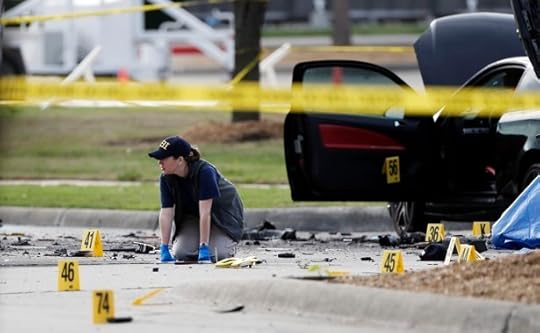
On Sunday night, two gunmen opened fire outside a complex in Garland, Texas, that was hosting a contest featuring cartoons of the Prophet Muhammad. Both gunmen were killed and one security officer was injured in the shootout.
What We Know About the Shooting
Sunday's shooting took place outside the Muhammad Art Exhibit and Cartoon Contest, which was being held in Garland, a city just northeast of Dallas. The contest, which offered a $10,000 prize, was hosted by the American Freedom Defense Initiative, a group widely characterized as Islamaphobic.
"As today’s Muhammad Art Exhibit event at the Curtis Culwell Center was coming to an end, two males drove up to the front of the building in a car,"officials wrote on the the city's Facebook page. "Both males were armed and began shooting at a Garland ISD security officer. The GISD security officer's injuries are not life-threatening. Garland Police officers engaged the gunmen, who were both shot and killed."
The incident only lasted a few seconds. The first gunman was killed almost instantly, and the second gunman was fatally shot while reaching into a backpack that authorities suspected might have contained explosives.
The event was hosted by anti-Islam activist Pamela Geller, once labeled a "clinical paranoid" and a "wildly prejudiced person" by The Atlantic's Jeffrey Goldberg, and featured a speech by the anti-Islam Dutch politician Geert Wilders. The focus on drawings of Muhammad elicited comparisons to January's Charlie Hebdo massacre in Paris.
What We Know About the Shooters
Moments before Sunday's shooting, a tweet went out from an account with name "Sharia Is Light," which included "#texasattack" as the hashtag.
"The user wrote, 'May Allah accept us as mujahideen,'" according to The Los Angeles Times. "Attendees inside the conference didn’t get word about the shooting until 6:50 p.m." By early Monday, the Twitter account had been suspended.
Later on Monday, a federal law enforcement official confirmed that one of the shooters was Elton Simpson, an Arizona man, who previously had been convicted on a minor charge in a broader terrorism-related case.
"Elton Simpson was prosecuted in 2010 in federal court in Phoenix for making false statements to FBI agents about going to Somalia to engage in jihad," The Los Angeles Times reported. "He was found guilty of making the false statements, but the judge ruled that there was insufficient evidence to conclude that the crime was directly involved to 'international terrorism.'"
Simpson was given a small fine and placed on three years' probation. The identity of the shooter, as of yet, remains unknown.







The 2016 Presidential Race: A Cheat Sheet
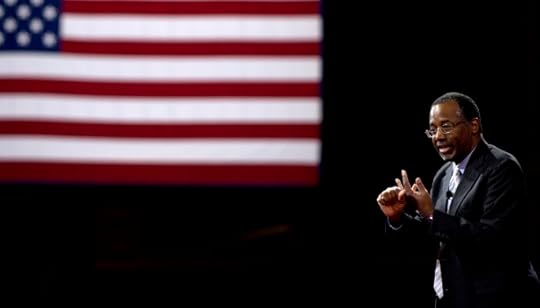
Every candidate in the 2016 race so far is an experienced politician. That changes Monday with the addition of two new candidates with little electoral experience: neurosurgeon Ben Carson and former executive Carly Fiorina. Both chose Monday to announce their presidential campaigns, and both face an uphill battle against the GOP establishment.
Carson has confirmed his run with reporters, but the big kickoff will be a rally in Detroit, his hometown, Monday afternoon. Fiorina, meanwhile, is eschewing a big launch in favor of an online rollout, and announced her campaign with a tweet early Monday morning.
The field is expected to grow again on Tuesday when Mike Huckabee—the former Arkansas governor who made a strong showing in 2008, placing third in the Republican primary—makes his decision about a run formal.
With so many candidates in the mix—some announced, some soon to announce, and some still on the fence—it’s tough to keep track of it all. To help out with that, this cheat sheet on the state of the presidential field will be periodically updated throughout the campaign season. Here's how things look right now.
* * *
The Republicans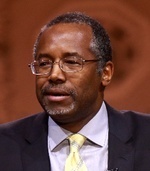 Gage Skidmore
Gage Skidmore Ben Carson
Is he running? Yes, with his May 4 announcement.
Who wants him to run? Grassroots conservatives, who have boosted him up near the top of polls, even as Republican insiders cringe. Carson has an incredibly appealing personal story—a voyage from poverty to pathbreaking neurosurgery—and none of the taint of politics.
Can he win the nomination? Almost certainly not. Carson's politics are conservative on some issues, but so eclectic as to be nearly incoherent overall. He's never run a political campaign, and has a tendency to do things like compare ISIS to the Founding Fathers. It's hard to imagine his candidacy surviving more serious scrutiny, but then again he's reportedly building an impressive political organization, especially in Iowa.
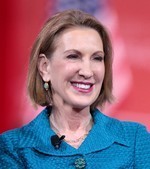 Gage Skidmore
Gage Skidmore Carly Fiorina
Is she running? Yes, as of May 4.
Who wants her to run? It isn’t clear what Fiorina’s constituency is. She’s a former CEO of Hewlett-Packard, but there are other business-friendly candidates in the race, all of whom have more electoral experience.
Can she win the nomination? Almost certainly not. Fiorina’s only previously political experience was a failed Senate campaign against Barbara Boxer in 2010. She has mostly been serving the role of harasser in the race so far, stirring up the news with slams on environmentalists for causing droughts (your guess is as good as mine), Obama for backing net neutrality, and Apple’s Tim Cook for speaking out on Indiana’s Religious Freedom Restoration Act. Mainly, though, she has strongly criticized Hillary Clinton, and some Republican strategists like the optics of having a woman to criticize Clinton so as to sidestep charges of sexism.
What else do we know? Fiorina's 2010 Senate race produced two of the most entertaining and wacky political ads ever, "Demon Sheep" and the nearly eight-minute epic commonly known as "The Boxer Blimp."
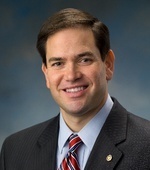 Wikimedia
Wikimedia Marco Rubio
Is he running? Yes—he announced on April 13.
Who wants him to run? Rubio enjoys establishment support, and has sought to position himself as the candidate of an interventionist foreign policy.
Could he win the nomination? Charles Krauthammer pegs him as the Republican frontrunner. His best hope seems to be to emerge as a consensus candidate who can appeal to social conservatives and hawks, and he's even sounded some libertarian notes of late. He's well-liked by Republicans, and has surged forward since announcing, but he needs to move up from second choice to first choice for more of them.
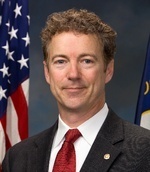 Wikimedia
Wikimedia Rand Paul
Is he running? Yes, as of April 7.
Who wants him to run? Ron Paul fans; Tea Partiers; libertarians; civil libertarians; non-interventionist Republicans.
Can he win the nomination? That depends who you ask. The Kentucky senator would be an unorthodox pick, with many positions outside his party's mainstream. He's relatively permissive on drugs and same-sex marriage, passionate about civil liberties, and adamantly for restraint on foreign policy. But Paul has worked hard to firm up establishment ties since reaching the Senate, and he has recently worked to paper over his differences with GOP’s hawkish wing, calling for a declaration of war against ISIS and generally saber-rattling. He is positioning himself as a candidate with crossover appeal in the general election, and his announcement email mocked the idea that only an establishment candidate can win a general election.
What else do we know? One of Paul's greatest strengths is the base bequeathed to him by his father, three-time presidential candidate and former Representative Ron Paul. But as The Washington Post has reported, his father is also Senator Paul's biggest headache, due to his penchant to speaking his mind on issues like secession. Ron Paul's institute also publishes fringe views like the idea that the Charlie Hebdo attacks were a false-flag operation.
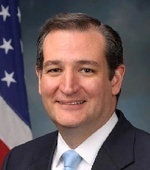 Wikimedia
Wikimedia Ted Cruz
Is he running? Yes. He launched his campaign March 23 at Liberty University in Virginia.
Who wants him to run? Hardcore conservatives; Tea Partiers who worry that Rand Paul is too dovish on foreign policy; social conservatives.
Can he win the nomination? Though his announcement gave Cruz both a monetary and visibility boost, he still starts with some serious weaknesses. Much of Cruz's appeal to his supporters—his outspoken stances and his willingness to thumb his nose at his own party—also imperil him in a primary or general election, and he's sometimes been is own worst enemy when it comes to strategy. But Cruz is familiar with running and winning as an underdog.
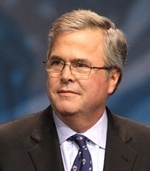 Gage Skidmore
Gage Skidmore Jeb Bush
Is he running? Almost certainly.
Who wants him to run? Establishment Republicans; George W. Bush; major Wall Street donors.
Can he win the nomination? No one really knows. Since jumping into the race, he has continued to poll well and raise lots of money. He seems like a lock to rack up all-important endorsements from top Republicans. But predictions that he would quickly come to dominate the field have not come to pass, and while many analysts predicted that his moderate record would cause trouble in Iowa and with grassroots activists, that problem seems to be deeper than expected. His poll numbers are probably helped by his name, which is a double-edged sword.
What else do we know? Since Bush's surprise announcement, he has tended to stay fairly quiet, delivering some big speeches and hitting fundraisers, but not making a great number of trips to Iowa or New Hampshire.
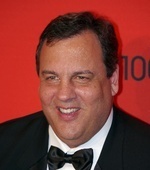 David Shankbone
David Shankbone Chris Christie
Is he running? It seems ever harder to imagine. With indictments of two of his former top aides in early May, and a guilty plea by a high-school friend and political appointee, the George Washington Bridge scandal has crept ever closer to him. The New York Times says he's trying to "salvage" his campaign. Christie does have some campaign infrastructure in place in New Hampshire, which is close to his home state, with staffer hires and town-hall meetings there. He has also formed a political-action committee.
Who wants him to run? Moderate and establishment Republicans who don't like Bush or Romney; big businessmen, led by Home Depot founder Ken Langone.
Can he win the nomination? The tide of punditry had turned against Christie even before the "Bridgegate" indictments. It's hard to imagine how he recovers at this point, given the crowded field and the fact that Jeb Bush seems to dominate the moderate end of the Republican Party. Citing his horrific favorability nominations, FiveThirtyEight bluntly puns that "Christie's access lanes to the GOP nomination are closed." A recent Monmouth University poll showed him trailing even Donald Trump (see below) for the nomination. Plus, he'd probably have to resign as governor to run, because of SEC rules that cover donations from companies that do business with the state. With such high stakes, he might not want to run at all if he doesn't see a clear path to win.
When will he announce? According to Time, Christie has told donors that running is harder than he had realized, and that he may have to push back an announcement to as late as June.
What else do we know? If you can tell what is going on in this GIF, please let me know. Is he tossing the jacket away? Or catching it? And what does it mean?
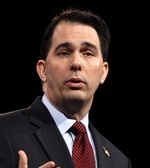 Gage Skidmore
Gage Skidmore Scott Walker
Is he running? Almost certainly.
Who wants him to run? Walker's record as governor of Wisconsin excites many Republicans. He's got a solid résumé as a small-government conservative. His social-conservative credentials are also strong, but without the culture-warrior baggage that sometimes brings. And Walker has won three difficult elections in a blue-ish state.
Can he win the nomination? No one knows. For all his strengths, Walker has never run a national campaign and isn't exactly Mr. Personality. But Jeb Bush's emergence seems to have helped Walker, propelling him to the front of the pack as a more conservative alternative to Bush. He's now solidly in the top tier of candidates.
When will he announce? Spring.
What else do we know? Barack Obama took a shot on April 7 at Walker for his criticism of a nuclear-deal framework with Iran. That's a sign that he's becoming a power player, and sniping from the White House is only likely to elevate Walker's standing with Republicans. Good news, bad news: Walker has a geographic advantage in his proximity to Iowa, but a potential biological disadvantage from his allergy to dogs.
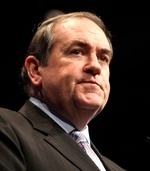 Gage Skidmore
Gage Skidmore Mike Huckabee
Is he running? Probably. He quit his Fox News show and recently published a campaign book titled God, Guns, Grits, and Gravy.
Who wants him to run? Social conservatives; evangelical Christians.
Can he win the nomination? Huckabee sure seems like an old-fashioned flavor, having sat out 2012. But he was a close third in the 2008 GOP primary, and his combination of affable demeanor and strong conservatism is potent. As it was eight years ago, fundraising is probably his Achilles' heel. He'd also be wise to stop attacking Beyoncé.
When will he announce? He's making a declaration on May 5.
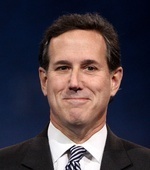 Gage Skidmore
Gage Skidmore Rick Santorum
Is he running? Yes.
Who wants him to run? Social conservatives. The former Pennsylvania senator didn't have an obvious constituency in 2012, yet he still went a long way, and Foster Friess, who bankrolled much of Santorum's campaign then, is ready for another round.
Can he win the nomination? It's tough to imagine. Santorum himself said his chances would hinge on avoiding saying "crazy stuff that doesn't have anything to do with anything." National Review Editor Rich Lowry praised his speech at a January summit in Iowa hosted by Steve King, the representative and conservative powerbroker.
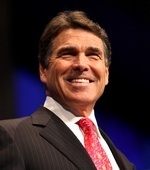 Gage Skidmore
Gage Skidmore Rick Perry
Is he running? Very likely.
Who wants him to run? Small-government conservatives; Texans; immigration hardliners; foreign-policy hawks. Noah Rothman makes a case here. (Perry's top backer four years ago, non-relative Bob Perry, died in 2013.)
Can he win the nomination? Maybe, but who knows? Perry and his backers insist 2016 Perry will be the straight shooter who oversaw the so-called Texas miracle, not the meandering, spacey Perry of 2012. We'll see.
When will he announce? May or June.
 Gage Skidmore
Gage Skidmore Sarah Palin
Is she running? A bizarre speech in January made a compelling case both ways.
Who wants her to run? Palin still has diehard grassroots fans, but there are fewer than ever.
Can she win the nomination? No.
When will she announce? It doesn't matter.
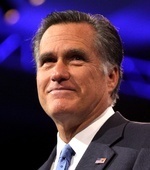 Gage Skidmore
Gage Skidmore Mitt Romney
Is he running? Nah. He announced in late January that he would step aside.
Who wanted him to run? Former staffers; prominent Mormons; Hillary Clinton's team. Romney polled well, but it's hard to tell what his base would have been. Republican voters weren't exactly ecstatic about him in 2012, and that was before he ran a listless, unsuccessful campaign. Party leaders and past donors were skeptical at best of a third try.
Could he have won the nomination? He proved the answer was yes, but it didn't seem likely to happen again.
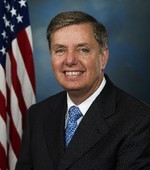 Wikimedia
Wikimedia Lindsey Graham
Is he running? Sure, why not?
Who wants him to run? John McCain, naturally. Senator Kelly Ayotte, possibly. Joe Lieberman, maybe?
Can he win the nomination? Not really. The South Carolina senator seems to be running in large part to make sure there’s a credible, hawkish voice in the primary. It seems like Graham started his campaign almost as a lark but has started to get into and enjoy the ride, plus he’s shown he’s a great performer on the stump. He’s still a longshot to actually win the nomination, but he could complicate Jeb Bush’s life by performing well in his home state of South Carolina—though he wasn’t even included in a recent straw poll in the Palmetto State.
When will he announce? By mid-May.
What else do we know? It’s still amazing that the man has never sent an email.
Donald Trump
Is he running?
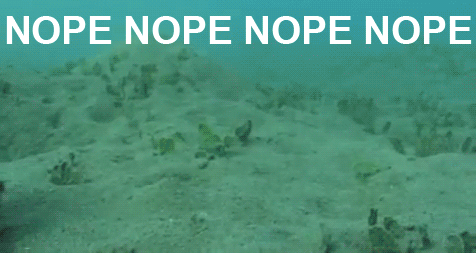
Others Still in the Mix:
John Kasich, Bobby Jindal, Pete King, Harold Stassen
* * *
The Democrats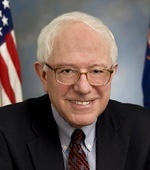 Wikimedia
Wikimedia Bernie Sanders
Is he running? Yes.
Who wants him to run? Far-left Democrats; socialists; Brooklyn-accent aficionados.
Can he win the nomination? No, although his campaign seems more about getting his ideas into the mix than about winning. In particular, he's an outspoken opponent of the Trans-Pacific Partnership, the free-trade agreement President Obama is pushing. Hillary Clinton once seemed to back the deal, but she's offered far more equivocal statements since declaring her candidacy. But Sanders came out of the gate with strong fundraising numbers and has testily rebuffed reporters who suggest he can't win.
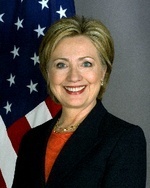 Wikimedia
Wikimedia Hillary Clinton
Is she running? Yes.
Who wants her to run? Most of the Democratic Party.
Can she win the nomination? Duh.
What else do we know? Maybe a better question, after so many years with Clinton on the national scene, is what we don't know. Here are 10 central questions to ask about the Hillary Clinton campaign.
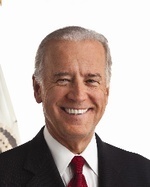 Wikimedia
Wikimedia Joe Biden
Is he running? He won't rule it out, but he's made no serious steps toward a run. He's addressing a "secretive" group of gay donors on May 2.
Who wants him to run? Joe Biden, maybe.
Can he win the nomination? If Clinton didn't run, it would throw the Democratic field into disarray. But probably not.
When will he announce? It seems ever more likely that he won't.
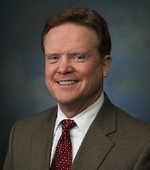 Wikimedia
Wikimedia Jim Webb
Is he running? He has launched an exploratory committee.
Who wants him to run? Dovish Democrats; socially conservative, economically populist Democrats; the Anybody-But-Hillary camp.
Can he win the nomination? Probably not.
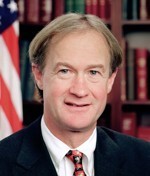 Wikimedia
Wikimedia Lincoln Chafee
Is he running? Chafee—who served in the U.S. Senate as a Republican and then as Rhode Island governor as an independent and then a Democrat—has launched an exploratory committee.
Who wants him to run? No one knows! Chafee's exploratory committee came out of nowhere, with little anticipation or fanfare or even rumors. He opted not to seek reelection as governor in 2014, in part because his approval rating had reached a dismal 26 percent.
Can he win the nomination? No. Chafee seems to be positioning himself as an economic populist and says Clinton's 2002 vote for the Iraq war should disqualify her (he was the only Republican senator to vote against it). In other words: He's Jim Webb with a less impressive resume, a less compelling bio (he's the son of longtime Senator John Chafee), and less of a political base. He gives himself even odds, though.
When will he announce? He says he wants to gauge support and fundraising and then decide in the next few months.
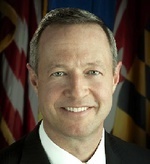 Wikimedia
Wikimedia Martin O'Malley
Is he running? Probably.
Who wants him to run? Not clear.
Can he win the nomination? Not with Clinton running.
When will he announce? Spring.
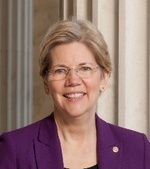 Wikimedia
Wikimedia Elizabeth Warren
Is she running? No. Seriously, no.
Who wants her to run? Progressive Democrats; economic populists, disaffected Obamans, disaffected Bushites.
Can she win the nomination? No, because she's not running.







Where the Minimum-Wage Fight Is Being Won
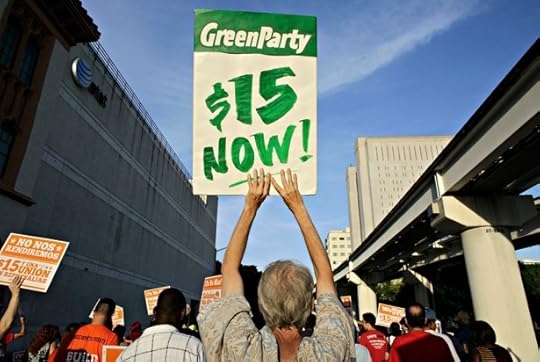
Last Thursday, congressional Democrats unveiled their latest demand for an increase in the national minimum wage: $12 an hour by 2020, an increase of nearly 68 percent from its current $7.25. Their proposal isn't likely to get enacted anytime soon. Yet the real story in the minimum-wage fight is just how much of an afterthought the federal government has become.
Washington Senator Patty Murray, a member of the Democratic leadership, is one of the main authors of the legislation. An increase in the federal minimum wage wouldn't help any of her constituents: Washington State's floor is $9.47 an hour, and its largest city, Seattle, just joined the suburb of SeaTac in approving a $15 minimum wage—more than twice that of the national figure. Congress hasn't touched the federal minimum wage in eight years. But while lawmakers in the Capitol dither, cities and states under both Democratic and Republican leadership have acted on their own in the last few years, responding to public pressure surrounding income inequality and wage stagnation.
Related Story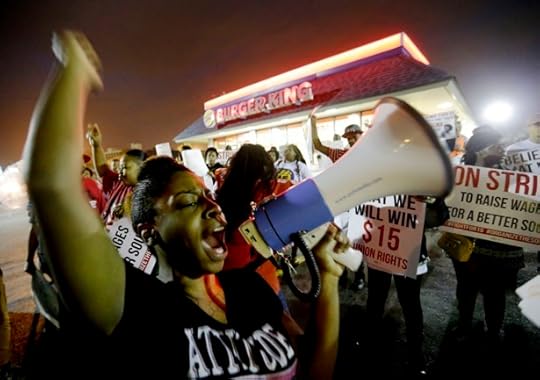
Twenty-nine states plus the District of Columbia now have minimum wages higher than the federal standard, and in just the last two years, 17 have approved increases. The recent round of action included more conservative states like Alaska, Arkansas, and Nebraska, where voters last year approved modest raises for low-wage workers. On top of that, more than a dozen municipalities—including large cities like Seattle, D.C., San Francisco, and several others in California—have pushed theirs even higher since 2013.
“There’s just been this ratcheting up of consciousness about the crisis of low wages, and that has really fueled a lot of the activism at the local level," said Christine Owens, executive director of the National Employment Law Project, an advocacy group pushing to raise the minimum wage. "Fight for 15" rallies and President Obama's two-year campaign haven't moved the Republicans running Congress, but they have had an impact across the country. Corporate America has begun to respond as well, as Wal-Mart and McDonalds have each announced plans to increase pay for their employees.
“There’s just been this ratcheting up of consciousness about the crisis of low wages, and that has really fueled a lot of the activism at the local level."It's not unusual for Congress to lag behind cities and states in boosting the minimum wage, at least since the beginning of Ronald Reagan's presidency in 1981, when lawmakers stopped enacting increases at semi-regular intervals. Still, Owens said the grassroots activism on the minimum wage is more intense now than at any time since she began working on the issue 20 years ago. Part of the movement's success on the state and local level, according to several advocates I interviewed, is due to a change in perception. Whereas people once associated minimum-wage jobs with high school and college students looking to earn a little extra spending money, the advocacy during the economic recovery has spotlighted the millions of adults who are earning paltry pay for full-time jobs. "You have people working full-time who are still living in poverty," said Representative Bobby Scott, a Virginia Democrat who is the chief sponsor of the $12 proposal in the House. "Raising the minimum wage will address that." About 37.7 million workers would benefit from the higher wage floor, and just 11 percent would be teenagers, said David Cooper, who co-authored a study of the legislation for the left-leaning Economic Policy Institute.
If nothing else, the wave of minimum-wage increases at the state and local levels has pushed Democrats in Congress to be bolder in their demands. When President Obama made the minimum wage a centerpiece of his State of the Union address in 2013, he called for the new standard to be $9 an hour. A few months later, Democrats Tom Harkin and George Miller (both since retired) introduced legislation raising it to $10.10. Now the goal is up to $12, phased in over five years. While economists acknowledge that a steep increase could stifle job-creation, liberal analysts argued that when adjusted for inflation, a $12 floor in 2020 would merely bring the minimum wage in line with where it was in 1968, when it hit its peak relative to the broader economy. Unlike earlier proposals, the Murray-Scott bill would also raise the minimum wage for tipped workers (waiters and waitresses, for example), and it would be indexed to the median wage nationally, as opposed to inflation measured by consumer prices.
More From Living, and Dying, at Home Damn the Developers? Marrying Your Peer, a Tougher Prospect for Black Women
Living, and Dying, at Home Damn the Developers? Marrying Your Peer, a Tougher Prospect for Black Women Then again, do the details really matter if the bill doesn't stand a chance? In the House, Speaker John Boehner can't even get Republicans to act on issues he supports (See: Immigration reform). And as the son of a barkeep who once ran his own small business, Boehner is passionately and personally opposed to lifting the minimum wage. (He once said he'd rather commit suicide than vote for a straight-up increase, although that was nearly 20 years ago.) The best hope that Democrats have is either getting the proposal attached to a broader package that includes a GOP priority, or bringing enough pressure to bear that rank-and-file Republicans begin breaking from the leadership—a strategy they tried unsuccessfully with immigration. "My hunch is that this will be a 2016 vote, one way or the other," Owens said. Given the campaigns underway outside Washington, another half-dozen states could increase their minimum wages by then, leaving the feds farther and farther behind.







May 3, 2015
Boxing's Boring Night
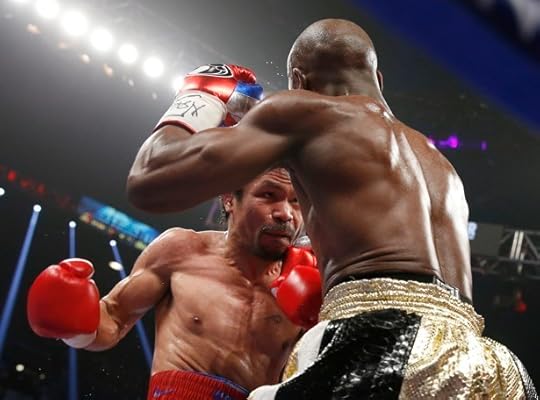
After all the anticipation, hype, and controversy surrounding Saturday's fight between Manny Pacquiao and Floyd Mayweather Jr., it was easy to forget that an actual boxing match was to occur. But sure enough, the two men entered the ring at Las Vegas' MGM Grand and fought each other across 12 tightly-contested rounds, trading jabs and dodges. In the end, the three judges awarded Mayweather, who landed 148 punches to Pacquiao's 81, a unanimous victory—his 48th without a single defeat.
The reaction was underwhelming. The fight had "no real intrigue," wrote Sharan Shetty at Slate, adding that "it’s unlikely that anyone new to boxing became enamored with the sport after watching." But this isn't really surprising. For all of its literary flair, boxing, as a spectator sport, is often rather dull. Saturday's match was no exception. Both Mayweather and Pacquiao applied a defensive strategy that aimed to wear down his opponent, neither made many attempts at landing a knockout blow. For serious fans, this strategy is simply part of the sport's charm, and as a clinical display of boxing, Saturday's match was no disappointment.
"Boxing is like jazz. The better it is, the less people appreciate it.""Boxing is like jazz," the heavyweight champion George Foreman once said. "The better it is, the less people appreciate it."
But as a form of entertainment for casual fans, the event didn't come close to matching the hype. Those who watched at home forked out a handsome $99.95 for the privilege, while commercial proprietors were hit up for as much as $15,500. (That explains why your local bar probably charged an exorbitant cover last night.) Live gate receipts in Las Vegas were projected to exceed $70 million, and international broadcasts, and merchandise will bring in millions more.
All of this translates into a rich purse for the fighters, who will each earn over $100 million for their 40 minutes inside the ring. But for Floyd Mayweather, this hype has brought his deeply troubling personal life to a wider audience. In the last two weeks, journalists (including the Atlantic's Megan Garber) have documented the boxer's history as a serial woman batterer while Las Vegas—a city that profits greatly from hosting events like championship boxing matches—looks the other way. Mayweather's attempts to exercise damage control have backfired. Last week, his camp denied press passes to two female journalists who have devoted significant coverage to the fighter's domestic violence record. Pacquiao's record, by comparison, is angelic. But the 36-year-old has been criticized in his native Philippines for marital infidelity, tax evasion, and homophobia.
Fans have long been willing to support athletes whose personal behavior appalls them, because no other form of entertainment can match the drama and kinetic thrill of live sports. But Saturday's bout lacked this sense of urgency. Instead, it featured two men, years past their prime, fighting as if the outcome didn't matter—because in a pecuniary sense, it didn't.
"To watch Floyd Mayweather box is to witness an elaborate exercise in self-preservation," wrote Drew Magary at Deadspin. "There’s not much passion. There’s certainly not much flair."
Mayweather has announced that his extraordinary 19-year career will conclude in September. No matter what happens, he'll retire as the highest-paid professional athlete of all time. But Saturday's "Fight of the Century" may mark a moment when his sport—once among the most popular in the country—withered under the spotlight.







Not If He Were The Last Man on Earth

When The Last Man on Earth debuted in March to critical praise and surprisingly strong ratings, it felt like a notable anomaly on network television. In its spare opening episode, creator/star Will Forte's vision of the post-apocalypse Earth featured a white-trash Monsieur Hulot-type wreaking wanton property destruction in Tucson and pilfering antiquities from the Smithsonian in an effort to stave off the crushing emptiness of the world. When another character (played by Kristen Schaal) entered the scene, it initially felt like sweet relief—someone for Forte's shellshocked wanderer to play off of—but then more people started rolling in, and the show became something far more nightmarish: a vision of the dating life of a single, entitled, American thirtysomething.
Related Story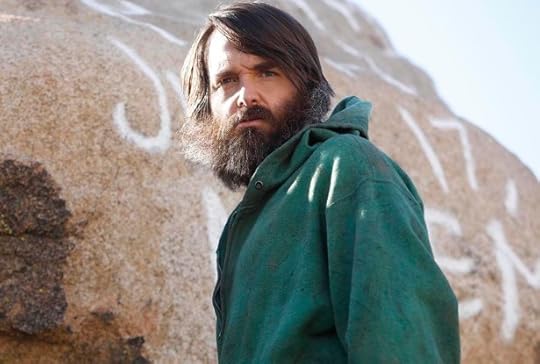
Finding Laughs at the End of the World
Perhaps the hint had been in the title all along: after all, Phil Miller (Forte) is quickly proven not to be the actual last man alive, as other survivors of an unexplained virus arrive every week at his Tucson refuge. Instead, the title is perhaps a reference to the old adage, "Not if you were the last man on earth," an attitude Phil frequently runs into as he tries to execute hair-brained romantic schemes with every woman who rolls into town. It's a tonal shift that made the show intensely uncomfortable to watch most weeks and cost it some critical support after its pilot episode, which relied more on spare absurdity and didn't seek so doggedly to make its audience cringe.
TV critics have pointed out that The Last Man on Earth would probably have benefited from a Netflix-style release, where an entire season is dumped onto the Internet all at once. While Forte is clearly using his post-apocalyptic universe to tell a very specific story with a carefully considered arc, he's doing it with very little sympathy for his protagonist, which makes week-to-week viewing something of a slog. Phil Miller (played by Forte) began the series as a bearded clown who had been alone for so long that he happily used his swimming pool as a giant toilet. But once women started showing up, his behavior became far more predictable.
More often than not, the plotting of The Last Man on Earth resembles some giant cosmic joke being played on Phil: a Twilight Zone episode lasting a whole season. Phil is first heartened to meet another human—the persnickety Carol Pilbasian (Schaal)—but quickly finds he can't stand her. She's eager to work on repopulating the earth with him, but only if they get married, a seemingly meaningless ritual he grudgingly assents to. The second that happens, another lady pulls into town: Melissa (January Jones), a gorgeous blonde who confesses to Phil that she's "horny" but respects his marriage vows, to his great consternation.
The entire season has played out that way. Phil craves human contact, popularity, and most of all, consequence-free sex. His post-apocalyptic existence is otherwise nihilistic: When he's not vainly trying to impress the women of Tucson (two more have since shown up, played by Mary Steenburgen and Cleopatra Coleman) he's usually engaging in wanton destruction for the sake of it, such as lazily setting a mountain of toilet paper rolls on fire, or driving a steamroller over six-packs of beer. In the context of a mostly empty Earth, Phil's outlook makes some sense, but there are other obvious metaphors at work.
On Saturday Night Live, Forte always excelled at exploring the dark side of the seemingly ordinary white dude. His best-known recurring characters included Tim Calhoun, a dull, soft-spoken political candidate with a horrifying history of arrests and drug addiction, and Jeff Montgomery, a sex offender identifying himself to neighbors on Halloween so he can pretend that he's just trick-or-treating "in costume." Phil Miller isn't quite as unsympathetic, but he's also no heroic protagonist. Every time he comes close to coupling with one of the beautiful residents of Tucson, some cruel twist cheats him out of his chance, for which he usually ends up cursing God. But all that underlines is his own sense of entitlement.
Phil is extremely unremarkable, and lacking in the practical skills needed to rebuild human civilization.Phil is, after all, extremely unremarkable, and lacking in the kind of practical skills one might need to rebuild human civilization. While everyone else tries to pitch in to restore running water and power, Phil mostly schemes to rid the town of other men so that its female residents have to be forced to rely on him, like some sad parable of dating in your late 30s. Phil thinks he doesn't have a ton to offer (although he sometimes shows flashes of a far sweeter, gentler personality) so he hopes that currying sheer desperation in others can carry him over the line.
Forte's real achievement, and the reason The Last Man on Earth has paid off in its first season (Fox has renewed it for a second), is that he doesn't lose sight of his characters' humanity amid the satire and crisp, eye-catching visuals (it's easily the best-looking comedy on television). Carol entered the show as a cartoonish shrew, demanding Phil obey the romantic rituals of the society she remembered (a candle-lit proposal, writing his own wedding vows) and clinging to monogamy as a desperate crutch despite only having met him a few days ago. But she quickly realized her husband's flaws, handed him a divorce (everything's very informal post-apocalypse) and found herself a new man played by Boris Kodjoe, in a glib but nonetheless effective moment of triumph.
Even Phil has had his sympathetic moments. After weeks of chasing the placid but undeniably pretty Carol, he finally broke down mid-season and admitted to her that he had basically lost his mind—that living without people for months on end, then being confronted with the typical social anxieties of the old world, had driven him to behave like a lunatic. It wasn't some pivotal scene of redemption so much as a brief moment of vulnerability, the kind that Phil's outmoded male lizard-brain won't allow him more of as he struggles to impress the others.
As the season winds to a close on Sunday, the increasingly isolated Phil has now even been robbed of his name (Kodjoe's character is also called Phil Miller, so the original Phil is now referred to by his middle name, Tandy). The penultimate episode saw Phil start to consider murder as his only option for survival, and whether or not the finale doubles down on that Lord of the Flies territory, the real achievement is that almost any plot development, even murder, seems plausible for this show. What other comedy can boast the same thing?
Whether or not this slow character development has won back the show's fans (its audience has dipped since a strong start), the original shift in tone was probably still crucial to The Last Man on Earth's survival. Of course, Forte could have embarked on a film or miniseries that stuck to the comedy of the man alone, fending for sanity in an empty America, but episodic television requires something a little more open-ended than that. The new characters, and Phil's painful love life, guaranteed Last Man's future on TV, even as it made its storytelling more creatively challenging—but not at the cost of its uniqueness.







May 2, 2015
Game of Thrones and 'Black Grantland': The Week in Pop-Culture Writing
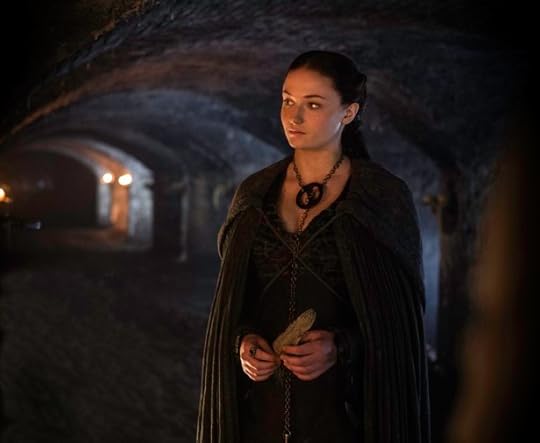
The Boxer and the Batterer
Louisa Thomas | Grantland
"A boxer who wins like a dancer allegedly beats women like a pugilist. What are you supposed to do with this?"
Stop Laughing at Old Movies, You $@%&ing Hipsters
Amy Nicholson | L.A. Weekly
"His stubborn laughter was an advertisement for his own superiority, like it's heroic to refuse to be 'suckered' by a fake rock that's obviously fake. But there's nothing triumphant about being too cool to dream."
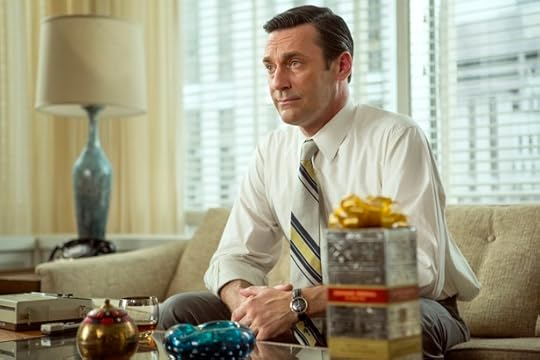
Don Draper and Horror Films: The Week in Pop-Culture Writing
Karl Ove Knausgaard Gives the People What They Want
Haley Mlotek | National Post
"Here, at last, was the unfiltered answer to the question that had plagued my adolescent self. Here, at last, was the truth I had suspected: what do teenage boys want? Not much."
Ten Years to Midnight
Jon Bois | SB Nation
"The game of basketball is not going away; on the contrary, it will finally shake free of us and become what it was always meant to be."
Forty Years After the Fall—Vietnam War Lit in 2015
Matt Gallagher | L.A. Review of Books
"Good literature finds its vitality in the messy grays of existence. Other than the sky, there wasn’t much gray in Saigon 40 years ago."
Game of Fear
Zachary Jason | Boston Magazine
"Gjoni had already collected enough material on Quinn—personal Facebook messages, texts, and email chats—to fill a bible. What’s more, he had an inkling about how to get back at her—how to weaponize the metadata of their relationship. He wouldn’t even need to touch her."
Sansa Stark’s Own “Game of Thrones”: Don’t Call It Stockholm Syndrome—She’s a Survivor
Sonia Soraya | Salon
"Sansa Stark has stood out for being a character that does not often get the privilege of a point of view in knight-and-dragon stories ... In that way, she is a fantastical stand-in for the overwhelming number of girls that are disappeared, in some way, in our world: Elizabeth Smart, Jaycee Lee Dugard, Michelle Knight, Elisabeth Fritzl, and no fewer than 200 girls from Chibok, in Nigeria."
How Jason Whitlock Is Poisoning ESPN's "Black Grantland"
Greg Howard | Deadspin
"In all, the notes tell a more compelling story about black life in America than anything The Undefeated has produced. And they point to one conclusion: Before it’s even launched, this site is already doomed."
Dave Itzkoff | The New York Times
"[Johnny] Carson, whether he knew it or not, was doing exactly what TV is supposed to be. Just let it go. Because it’s 11:30, and people are just looking for a pleasant experience. And I wish I could do that."







The Fight to Organize the 'Fight of the Century'
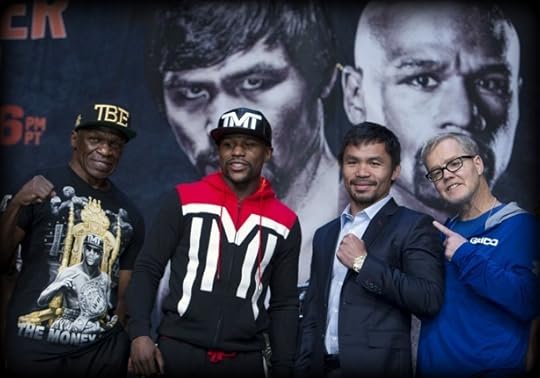
On Saturday night Manny Pacquiao and Floyd Mayweather Jr. will finally get into the ring together. They’re the two greatest welterweights of their generation, but it's nevertheless taken five years of negotiations to bring about what's being billed as the "fight of the century." At least for a weekend, the event has brought renewed interest to boxing: More than 2,000 people have applied for credentials, ticket prices are in the tens of thousands per seat, and the Las Vegas Convention and Visitors Authority estimates that between 94 and 98 percent of the city's 150,000 hotel rooms will be occupied this weekend as fans head to town to soak up the atmosphere.
Related Story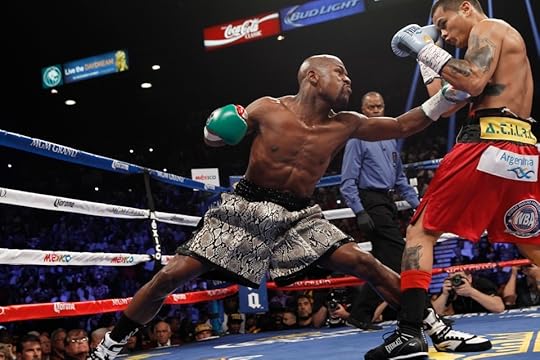
The Dodger: Floyd Mayweather and the Impunity of Genius
The fight is a landmark event, and the two boxers will enjoy an outlandish payday for a night’s work, with Mayweather making an estimated $180 million and Pacquiao around $100 million. But the showdown also highlights many of the problems that have become engrained in the fabric of the sport: money-making taking precedence over exciting match-ups, combative divisions between promoters and networks, and the sometimes off-putting, carnivalesque nature of the sport's culture.
***
The story of Saturday’s megafight begins with Manny Pacquiao. He grew up dirt-poor in the Philippines, dropped out of school in sixth grade, and sold cigarettes and donuts on the street. As he learned the boxing trade, his hand speed quickly earned him early success, though he had little technique. He eventually stowed away on a boat to Manila, where he worked construction jobs and started boxing professionally. He became a sensation on a Filipino boxing show called “Blow-by-Blow,” and his television-friendly style played well because he was preternaturally quick, took risks, and frequently knocked out his opponents.
In 2001, Pacquiao visited the United States and traveled on a Greyhound bus to the Wild Card Boxing Club in Hollywood, where he hooked up with the legendary trainer and ex-boxer Freddie Roach. Under Roach's tutelage, Pacquiao became a world champion in eight different weight divisions. In the Philippines, he’s a hero: a sitting Congressman who's known to inspire millions as he fights for—and gives money to—the poor. Pacquiao has fought the best boxers of his time, but there's a significant gap in his resume: He's never fought Mayweather.
Floyd Mayweather Jr. grew up in Grand Rapids, Michigan, surrounded by boxing: His father and uncle were exceptional fighters. Mayweather showed early prowess at the sport and would eventually go on to win an Olympic bronze medal. (His loss, in which the judges handed the victory to his outmatched opponent, is considered a travesty.) Then Mayweather turned pro and fought for the legendary promoter Bob Arum, who now works with Pacquiao. But Mayweather, who was then called “Pretty Boy,” felt hemmed in by Arum. He wanted to run his own show and create his own brand. So with the help of the Harvard-educated concert promoter Al Haymon, Mayweather bought himself out of his promotional contract and created the persona of “Money Mayweather," a big-talking, big-spending heel. The boxer, who hasn't lost in 19 years, is an exceptionally intelligent ring tactician who seems to out-think and out-box every opponent. His gamble to promote and brand himself has made him the highest-paid athlete in the world, according to Forbes.
Mayweather and Pacquiao started negotiating five years ago, and the dream matchup seemed close to fruition. But in 2009, Mayweather asked for random drug testing, which isn't normally the protocol in boxing. Pacquiao balked, claiming he was insulted, which prompted questions and a response from Mayweather: "It leaves me with great doubt as to the level of fairness I would be facing in the ring that night." The men went on to other battles: Pacquiao has fought nine times since the failed negotiations; Mayweather seven.
Boxers are essentially freelancers who look to their promoters to create fights and define their futures.Champion fighters have long faced like-weighted challengers, partly out of pride. Boxers enjoy testing themselves, and by taking on the most worthy opponent and winning, an athlete can truly lay claim to the title of world champion, or even to the mythical title of all-time great. Professional boxers are called prize fighters for a reason: When two great fighters face each other there's a lot of money at stake, and Mayweather openly professes that he only fights for the money. But in the last decade there's been a frustrating shift in the upper echelons of the sport as individual business interests have gotten in the way of organizing the most compelling fights. The fight game isn’t centrally controlled, so boxers are essentially freelancers who look to their promoters to create fights and define their futures.
The initial failure to arrange the fight troubled fans, who wanted their own version of Ali-Frazier or Hagler-Hearns, two classic matchups that defined an era for the sport. At the time, Mayweather and Pacquiao were in their prime. But because premium boxers generally fight twice a year, and their events are held on pay-per-view television, there’s less of an incentive to take significant risks. Unlike most sports, in which a loss here or there is tolerated, losing a single fight can sink a fighter financially. In the intervening years after initial negotiations ended, Mayweather continued to win, and his record is now 47-0. Pacquiao won, too, but then lost a controversial split decision in one match and three years ago was knocked out cold by Juan Manuel Marquez.
But as Mayweather and Pacquiao’s pay-per-view numbers became less impressive, there emerged a stronger financial incentive to make the fight happen, even though it was becoming slightly less compelling as both men aged. Mayweather is 38; Pacquiao 36. As a boxer loses his reflexes, the consequences can be dire. (According to Compubox, the men have both started throwing fewer punches per round.) So when the fighters ran into each other at a Miami Heat game in January, they re-started the negotiating process.
The business of boxing is brutal, and there's tremendous infighting as the men behind the boxers strive for market supremacy. Top Rank, the company run by Pacquiao's promoter Arum, is considered the premier promotional outfit, and has a strong relationship with HBO, which broadcasts Pacquiao’s fights. In the other corner, Mayweather’s own company, Mayweather Promotions, has been trying to compete against Top Rank and has aligned itself with Showtime. Given the rival factions in the sport, the different parties often simply don’t want to do business with each other. The roadblocks in getting the Mayweather vs. Pacquiao fight organized, and the problems associated with the promotion of it, have only exacerbated the tension.
For devout followers, boxing's dysfunctional aspects actually make the sport more entertaining.From the outset, Mayweather exercised his leverage: He's getting more of the financial split, and his team has been leading the often rocky promotion. For example, tickets went on sale only nine days before the fight. (Many went to the Mayweather team and are being re-sold in secondary markets for upwards of $10,000 per seat.) Arum lambasted the ticket situation and has been publicly feuding with MGM, specifically Richard Sturm, its president of entertainment and sports. Earlier this week, instead of Pacquiao doing a “grand arrival”—a branding event in which fighters are mobbed as they enter the hosting hotel’s lobby—Arum had Pacquiao skip the event to hold a “fan fest” at the Mandalay Bay, in a move meant as a slight to Sturm.
Instead of uniting boxing, the run up to Mayweather vs. Pacquiao has seemed to divide the sport even more. At the Wednesday press conference, Arum went out of his way to praise HBO and Mandalay Bay executives as Sturm and the Showtime executive Stephen Espinoza sat a few feet away. The boxing insiders in the room giggled at Arum’s various verbal digs, and even Mayweather seemed amused as Arum went on and on about HBO’s excellent programming. Leonard Ellerbe, the CEO of Mayweather Promotions, replied, “Bob, Showtime has the biggest star in sports and the best fighter in the world [Floyd Mayweather].” Espinoza defended Sturm, saying he'd “remained a gentlemen in the most trying of circumstances,” and tried to move the press conference back to the fighters.
Many members of the mainstream media, who'd never covered a major fight, looked baffled at what was happening on the stage.
Welcome to boxing.
For devout followers, the dysfunctional aspects actually make the sport entertaining, because it's an uncensored carnival quite unlike most modern corporatized leagues. But its lack of discipline also hurts its marketability to the general public.
So against all odds, the fight will be staged on Saturday. Mayweather vs. Pacquiao has become the Super Bowl of boxing, a defining moment for the sport that will cement the legacies of two all-time greats. If it’s a good fight, it could begin to smooth away the conflicts behind the scenes, or at least prove that the different factions in the sport can come together occasionally to create truly historic moments. For the duration of the match, at least, the fighting behind the scenes will be forgotten, and the stage will be handed to the athletes as the brilliant boxer from Grand Rapids takes on the beloved fighter with the quick hands from the Philippines.







May 1, 2015
To Sing a Song That Changes the World
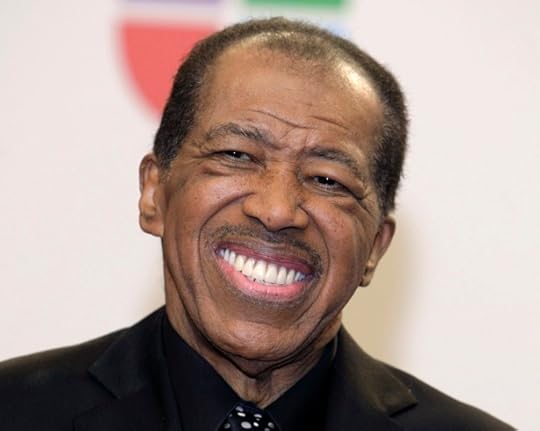
It was only a little more than a month ago that the Library of Congress announced it would induct Ben E. King’s “Stand By Me” into the National Recording Registry. "I think this is one of the greatest moments of my life,” King told CBS News at the time. That's no small statement for the man who died Friday at the age of 76, given that he contributed to some of the most powerful soul and R&B songs of all time.
But it makes sense that this particular accolade would feel like a highlight, a capstone, in an extraordinary life. The National Registry preserves tracks that are "culturally, historically, or aesthetically significant," and it’s hard to think of a title more deserving than “Stand By Me.” It has suffused all of culture since its 1961 release, inspiring covers from people as diverse as John Lennon, Muhammad Ali, and the author Stephen King (who also wrote the story that inspired the hit film that shares the song’s name). More than 400 artists have recorded versions of "Stand by Me" in total, and it's charted multiple times, including twice—decades apart—for King's original.
The song's historical and aesthetic significance can’t be understated, either. Its bass line, common among ‘50s doo-wop performances, became so associated with the song that the chord progression is sometimes referred to as the “'Stand by Me’ changes.” The lyrics work as a testament to friendship, or to romance, or to broader social solidarity; accordingly, it has soundtracked calls for political progress from America to Thailand. Its elemental power comes from the way it transforms a human relationship into something cosmic, apocalyptic, essential. “If the sky that we look upon should tumble and fall, and the mountains should crumble to the sea,” the lyrics testify, everything’s all right so long as you “stand by me.” That epic sense of scale has roots in love songs of time eternal but also in gospel, and the writers have said they were inspired by the worship song “Lord Stand by Me.” The King tune has, in turn, worked its way into many church services.
Related Story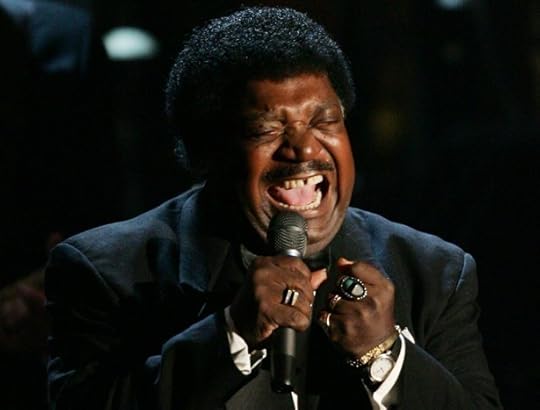
How 'When a Man Loves a Woman' Captured the Terror of Love
King originally set out to write the song for his band The Drifters, but they passed on it. The legendary producers Jerry Leiber and Mike Stoller helped the 23-year-old singer finish the music and lyrics so that he could release "Stand By Me" as a solo track. With the Drifters, he’d already sung on true classics like “There Goes My Baby,” “Save the Last Dance for Me,” and “This Magic Moment,” and King would go on to have 20 more songs in the Billboard Hot 100 between 1961 and 1975. He also would keep recording and touring until very late in life. But it was “Stand By Me” that would remain most associated with his name, and King never seemed to have a problem with that. Upon the song's Library of Congress induction, he reflected, "To think that my children's children's children's will look at that one day and say wow, Gramp did that, that's a feeling.” What a small group of people it is, in the end, who can know that feeling.







Atlantic Monthly Contributors's Blog
- Atlantic Monthly Contributors's profile
- 1 follower



